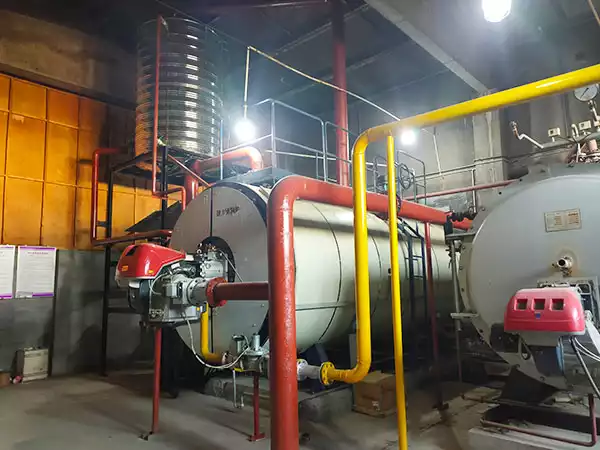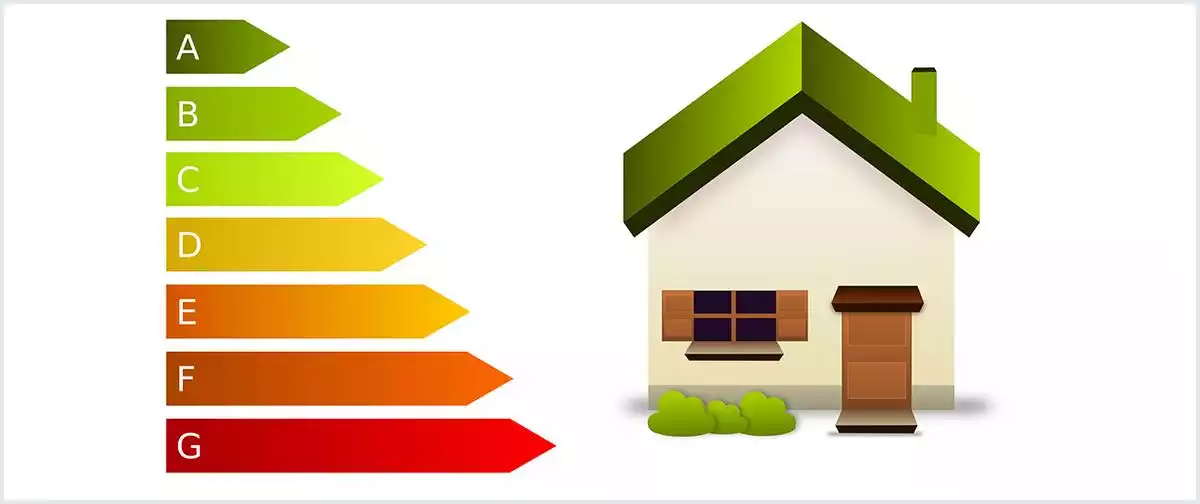When it comes to heating systems for residential and commercial spaces, boilers have long been a popular choice. They provide reliable and efficient heating during the cold months, keeping our indoor spaces cozy and comfortable. しかし, with advancements in technology, a new contender has emerged in the form of 凝縮ボイラー. 記事上で, we’ll dive deep into the differences between condensing and non-condensing boilers, exploring their features, benefits, and drawbacks to help you make an informed decision for your heating needs.
Both condensing and non-condensing boilers utilize fuel, typically gas, for combustion. しかし, the key distinction lies in their energy efficiency levels. Condensing boilers exhibit an impressive 効率 of up to 99%, whereas non-condensing boilers offer a comparatively lower efficiency of around 78%.
Both condensing boilers and non-condensing boilers convert energy from fuel into heat, which is then distributed throughout the building. The main difference lies in how they achieve this conversion.
In non-condensing boilers, the exhaust gases exiting the burner are relatively cool, containing a significant amount of unburned fuel and water vapor. These exhaust gases are vented to the atmosphere through a chimney or exhaust flue.
Condensing boilers, 一方で, recover the latent heat of the exhaust gases, converting it into useful energy. This is achieved by reducing the temperature of the exhaust gases to below the condensation point of water. As the exhaust gases cool, condensation occurs, trapping the latent heat and releasing it into the system as usable heat. The resulting condensate is then collected and drained away.

Condensing boilers are designed to achieve high efficiency by recovering otherwise wasted energy. They achieve this by utilizing a heat exchanger, which transfers heat from the exhaust gases to a secondary fluid, such as water or an antifreeze solution. As the exhaust gases cool, condensation occurs, and the resulting condensate is collected and recirculated back into the system.
Condensing boilers typically have 効率 ratings of up to 98%, significantly higher than non-condensing boilers, which typically range from 85% に 91%. This is mainly due to the fact that condensing boilers recover and reutilize waste energy that would otherwise be lost through the chimney.

Condensing boilers have a significantly lower environmental impact than non-condensing boilers. By recovering and reusing waste energy, condensing boilers reduce fuel consumption and subsequent greenhouse gas emissions. さらに, condensing boilers produce fewer emissions during operation, as they burn more efficiently.
Condensing boilers require a larger fluepipe and a vent that allows for proper ventilation. They also require a closed-loop cooling system to circulate the secondary fluid and collect the condensate. Non-condensing boilers, 一方で, require less ventilation and do not require a closed-loop cooling system.
 Get FREE Local Boiler Quotes today
Get FREE Local Boiler Quotes today Compare The Best Prices
Compare The Best Prices Save Money On Your New Boiler Today!
Save Money On Your New Boiler Today!Initial costs for condensing boilers are typically higher than non-condensing boilers due to the additional equipment required. しかし, over time, condensing boilers can save money on fuel costs, as they achieve higher efficiency ratings. Non-condensing boilers may have lower initial costs, but they tend to have lower efficiency ratings and higher fuel consumption.
Condensing boilers require regular maintenance to ensure proper function and efficiency. This includes cleaning the heat exchanger and condensate drain, as well as replacing filters and other consumables. Non-condensing boilers also require maintenance, although the frequency may be less due to their lower operating temperatures and less complex design.
Condensing boilers can have a longer lifespan than non-condensing boilers, as they operate at lower temperatures and do not experience the same wear and tear associated with higher temperature operations. Non-condensing boilers may have a shorter lifespan, as they operate at higher temperatures and are more susceptible to wear and tear.
 Get FREE Local Boiler Quotes today
Get FREE Local Boiler Quotes today Compare The Best Prices
Compare The Best Prices Save Money On Your New Boiler Today!
Save Money On Your New Boiler Today!Condensing boilers provide excellent heating performance, distributing heat efficiently throughout the building. Non-condensing boilers also provide reliable heating performance, although their overall efficiency is typically lower.
Condensing boilers often require more space than non-condensing boilers due to the additional equipment and plumbing required. Non-condensing boilers are typically smaller in size and easier to install in smaller spaces.
Condensing boilers are highly compatible with radiant floor heating systems, as they can provide efficient and uniform heat distribution. Non-condensing boilers can also be used with radiant floor heating systems, although they may not achieve the same level of efficiency.
Condensing boilers are well-suited for areas with mild climates, as they can recover and reuse waste energy more efficiently. Non-condensing boilers are more suitable for areas with severe winters, as they can operate in lower temperatures and provide reliable heating performance.
Condensing boilers often have user-friendly features, プログラム可能なサーモスタットなど, digital displays, and built-in diagnostics. Non-condensing boilers may also have some user-friendly features, although they may not be as advanced as condensing boilers.

In summary, condensing boilers offer higher efficiency, reduced fuel consumption, and a lower environmental impact compared to non-condensing boilers. They are well-suited for mild climates and provide excellent heating performance, uniform heat distribution, and user-friendly features. しかし, condensing boilers require a larger installation space and more frequent maintenance. Non-condensing boilers are less efficient but provide reliable heating performance, are relatively inexpensive, and can operate in lower temperatures. They are suitable for areas with severe winters and may have some user-friendly features. When choosing a boiler, it is important to consider the specific needs of your home or business, including efficiency requirements, climate, space constraints, and maintenance requirements.
Maintaining condensing boilers might be slightly more involved due to their complex components, but the energy savings often outweigh the maintenance costs.
Retrofitting might be possible, but it could involve significant modifications to your heating system and infrastructure.
はい, condensing boilers can work effectively with most radiator types, but optimal performance might require adjustments.
Generally, condensing boilers tend to be quieter due to their advanced technology and reduced heat wastage.
Access Now: https://www.makeboiler.com/products/
ボイラーの無料見積もり
遅延なし, 得る 3 今日の引用 最安値を比較 安全で信頼できるレビュー
この記事の内容?
Ⅴiew お客様のレビュー
"Fangkuai 熱油ボイラーを化学プラントで何年も使用しており、決してがっかりすることはありません. ボイラーは非常に耐久性があり、過酷な条件に耐えることができます. また、操作とメンテナンスが非常に簡単です, これにより、メンテナンスの時間と費用を節約できました. Fangkuai の熱油ボイラーは一流であり、信頼できる暖房ソリューションを必要としているすべての人に強くお勧めします。"
チャン
中国"Fangkuai の補助装置のおかげでボイラー システムがさらに良くなりました. 機器の品質は非常に優れており、価格は非常にリーズナブルです. この装置はボイラー システムの効率とパフォーマンスの向上に役立ちました, これは大幅なコスト削減につながりました. 高品質のボイラー付属品が必要な方には、Fangkuai の補助機器を強くお勧めします。"
マリク
イギリス"Fangkuai の蒸気発生器は私の中小企業に最適です. 非常に使いやすく、メンテナンスも最小限で済みます. また、非常にエネルギー効率が良い, これにより、光熱費を節約できました. Fangkuaiの顧客サービスも優れています. 彼らは非常に反応がよく、いつでも喜んで助けてくれます. Fangkuai の蒸気発生器を強くお勧めします。"
アーメド
エジプト"Fangkuai の蒸気ボイラーは、私の食品加工事業に最適です. それは私たちのすべての要件を満たし、非常に信頼できます. 材料の品質とボイラーの構造は並外れたものです. また、操作とメンテナンスが非常に簡単です, これにより、メンテナンスの時間と費用を節約できました. Fangkuai の蒸気ボイラーは、信頼性の高い暖房ソリューションを必要としている人に強くお勧めします。"
ジェイソン
ブラジル"工場用に Fangkuai 蒸気ボイラーを購入しましたが、もう何か月も問題なく動作しています。. 材料の品質とボイラーの構造は印象的です. また、非常にエネルギー効率が良い, これにより、光熱費を節約できました. Fangkuai の製品は、信頼性が高く効率的な暖房ソリューションを必要としているすべての人に強くお勧めします。"
ジョン
アメリカ合衆国"Fangkuai の温水ボイラーは素晴らしい. すばやく効率的に加熱します, そしてお湯が長時間沸く. 問題が発生したことは一度もなく、日常業務が大幅に改善されました. インストールプロセスも非常にスムーズで、カスタマーサービスは優れていました. Fangkuai の温水ボイラーを強くお勧めします。"
サラ
カナダ"Fangkuai の補助装置のおかげでボイラー システムがさらに良くなりました. 機器の品質は非常に優れており、価格は非常にリーズナブルです. この装置はボイラー システムの効率とパフォーマンスの向上に役立ちました, これは大幅なコスト削減につながりました. 高品質のボイラー付属品が必要な方には、Fangkuai の補助機器を強くお勧めします。"
マリク
イギリス"Fangkuai の蒸気ボイラーは、私の食品加工事業に最適です. それは私たちのすべての要件を満たし、非常に信頼できます. 材料の品質とボイラーの構造は並外れたものです. また、操作とメンテナンスが非常に簡単です, これにより、メンテナンスの時間と費用を節約できました. Fangkuai の蒸気ボイラーは、信頼性の高い暖房ソリューションを必要としている人に強くお勧めします。"
ジェイソン
ブラジル"Fangkuai の熱油ボイラーは、操作と保守が非常に簡単です。. メンテナンスの時間と費用を節約するのに役立ちました, これは大幅なコスト削減につながりました. 材料の品質とボイラーの構造は並外れたものです. また、非常にエネルギー効率が良い, これにより、光熱費を節約できました. Fangkuaiの熱油ボイラーを強くお勧めします ."
アレン
ブラジル